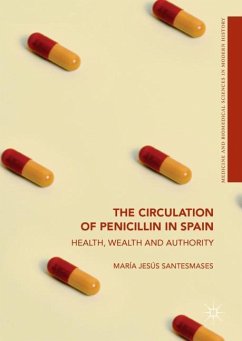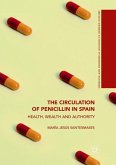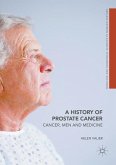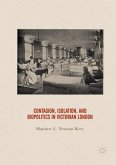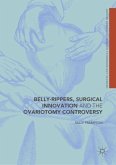This book reconstructs the early circulation of penicillin in Spain, a country exhausted by civil war (1936-1939), and oppressed by Franco's dictatorship. Embedded in the post-war recovery, penicillin's voyages through time and across geographies - professional, political and social - were both material and symbolic. This powerful antimicrobial captivated the imagination of the general public, medical practice, science and industry, creating high expectations among patients, who at times experienced little or no effect. Penicillin's lack of efficacy against some microbes fueled the search for new wonder drugs and sustained a decades-long research agenda built on the post-war concept of development through scientific and technological achievements. This historical reconstruction of the social life of penicillin between the 1940s and 1980s - through the dictatorship to democratic transition - explores political, public, medical, experimental and gender issues, and the rise of antibiotic resistance.
"An important book that pushes the boundaries of the historiography of biomedicine in many ways, The Circulation of Penicillin in Spain is also an interesting read for beginners, thanks to comprehensive introductions to the twentieth-century history of Spain; the origins of industrial drug production; the genealogy of penicillin; the history of antibiotic development, screening, and resistance; the standardization of terminology; and European consumption and regulation policies." (Agata Ignaciuk, Technology and Culture, Vol. 62 (2), April, 2021)
"Mariá Jesús Santesmases's innovative new book, The Circulation of Penicillin in Spain, stands at the crossroads of two recent historiographies: science and technology under fascism, and the history of drugs. ... Santesmases interweaves a story of biomedical politics and political economy with an on-the-ground exploration of gender and labor in the Spanish drug industry." (Angela N. H. Creager, Journal of the History of Biology, August, 2018)
"Mariá Jesús Santesmases's innovative new book, The Circulation of Penicillin in Spain, stands at the crossroads of two recent historiographies: science and technology under fascism, and the history of drugs. ... Santesmases interweaves a story of biomedical politics and political economy with an on-the-ground exploration of gender and labor in the Spanish drug industry." (Angela N. H. Creager, Journal of the History of Biology, August, 2018)

